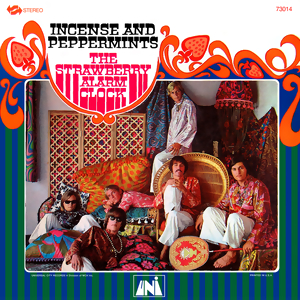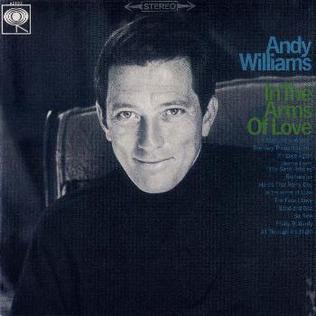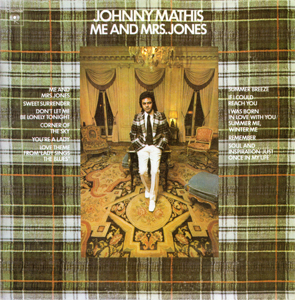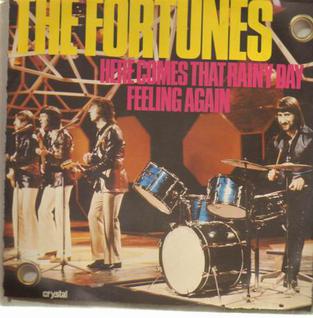Related Research Articles

Nuggets: Original Artyfacts from the First Psychedelic Era is a compilation album of American psychedelic and garage rock singles that were released during the mid-to-late 1960s. It was created by Lenny Kaye, who was a writer and clerk at the Village Oldies record shop in New York. He would later become the lead guitarist for the Patti Smith Group. Kaye produced Nuggets under the supervision of Elektra Records founder Jac Holzman. Kaye conceived the project as a series of roughly eight LP installments focusing on different US regions, but Elektra convinced him that one double album would be more commercially viable. It was released on LP by Elektra in 1972 with liner notes by Kaye that contained one of the first uses of the term "punk rock". It was reissued with a new cover design by Sire Records in 1976. In the 1980s, Rhino Records issued Nuggets in a series of fifteen installments, and in 1998 as a 4-cd box set.

Clarence George Carter is an American singer, songwriter, musician and record producer. His most successful songs include "Slip Away", "Back Door Santa", "Patches" (1970) and "Strokin" (1986).

Incense and Peppermints is the debut album by psychedelic rock band Strawberry Alarm Clock. Released in October 1967, it reached No. 11 on the Billboard 200 album charts during a 24-week run and included the band's No. 1 Billboard Hot 100 hit "Incense and Peppermints".
This is a list of notable events in country music that took place in the year 1997.
This is a list of notable events in country music that took place in the year 1985.

Reggie Grimes Young Jr. was an American musician who was lead guitarist in the American Sound Studio house band, The Memphis Boys, and was a leading session musician. He played on various recordings with artists such as Elvis Presley, Joe Cocker, Dobie Gray, Joe Tex, Merrilee Rush, B.J. Thomas, John Prine, Dusty Springfield, Lynn Anderson, Herbie Mann, J.J. Cale, Jimmy Buffett, Dionne Warwick, Roy Hamilton, Willie Nelson, Waylon Jennings, the Box Tops, Johnny Cash, Jerry Lee Lewis, Merle Haggard, Joey Tempest, George Strait, and The Highwaymen. Young was inducted into the Musicians Hall of Fame and Museum in 2019.
"The Shadow of Your Smile", also known as "Love Theme from The Sandpiper", is a popular song. The music was written by Johnny Mandel with the lyrics written by Paul Francis Webster. The song was introduced in the 1965 film The Sandpiper, with a trumpet solo by Jack Sheldon and later became a minor hit for Tony Bennett. It won the Grammy Award for Song of the Year and the Academy Award for Best Original Song. In 2004 the song finished at number 77 in AFI's 100 Years...100 Songs poll of the top tunes in American cinema.
This is a list of notable events in country music that took place in the year 1929.

"Incense and Peppermints" is a song by the Los Angeles-based psychedelic rock band Strawberry Alarm Clock. The song is officially credited as having been written by John S. Carter and Tim Gilbert, although it was based on an instrumental idea by band members Mark Weitz and Ed King. It was released as the A-side of a single in May 1967 by Uni Records and reached the number one position on the Billboard Hot 100, where it stayed for one week before beginning its fall down the charts. Although the single was released in the United Kingdom it failed to break into the UK Singles Chart. The song was featured in the film Austin Powers: International Man of Mystery and the fictional biopic Daisy Jones and the Six.

In the Arms of Love is the nineteenth studio album by American pop singer Andy Williams and was released on December 19, 1966, by Columbia Records and was the last of twelve consecutive Williams studio LPs produced by Robert Mersey.

Happy Heart is the twenty-third studio album by American pop singer Andy Williams, released in the spring of 1969 by Columbia Records and continued the trend of his recent albums in relying exclusively on contemporary material. This particular project eschewed offerings from Broadway and Hollywood that had been predominant on his LPs with Columbia.

The Andy Williams Show is the twenty-sixth studio album by American pop singer Andy Williams that was released in the fall of 1970 by Columbia Records. In his review on AllMusic.com, William Ruhlmann writes that "The Andy Williams Show LP was not a soundtrack recording from the TV series, and it was not really a live album, although it gets categorized as such. What appears to be the case is that Columbia Records took a group of Williams' studio recordings, most of them made during the summer of 1970 and consisting of his versions of recent soft rock hits, and added a lot of canned applause along with some of the kind of musical interludes used to usher numbers on and off on the show, including bits of its "Moon River" theme music at the start and the finish."

The Other Side of Me is the thirty-fifth studio album by American pop singer Andy Williams, released in the summer of 1975 by Columbia Records and including the 1973 recording of "Solitaire" from his album of the same name alongside 10 original recordings, four of which were also by "Solitaire" composer Neil Sedaka. After unsuccessful attempts to leave behind the formulaic album genre of easy listening covers of pop hits, The Other Side of Me offered a compromise by filling half of the sides with material that was popularized by other artists and the other half with either new or obscure selections.

B Sides and Rarities is a compilation album by the American pop singer Andy Williams that was released by Collectables Records on May 27, 2003. Although the collection starts with two 1947 recordings by Kay Thompson and The Williams Brothers, the rest of the material comes from his time at Columbia Records and includes covers of contemporary hits as well as lesser-known material from the songwriters of "Can't Get Used to Losing You", "Home Lovin' Man" and "Moon River".
John S. Carter, Jr., better known as simply Carter, was an American music producer, writer, arranger, instrumentalist, and A&R man.

Song Sung Blue is an album by American pop singer Johnny Mathis that was released on September 13, 1972, by Columbia Records and featured his renditions of mostly recent chart hits.

Me and Mrs. Jones is an album by American pop singer Johnny Mathis that was released in January 1973 by Columbia Records. While it does cover several big chart hits of the day like his last album, Song Sung Blue, did, it also includes songs that didn't make the US Top 40 or had never charted.

Feelings is an album by American pop singer Johnny Mathis that was released on October 20, 1975, by Columbia Records and strayed slightly from the practice of covering hits by other artists to include two new songs, both of which were written by Jerry Fuller: "Hurry Mother Nature" and "That's All She Wrote", which Ray Price took to number 34 on the Country chart the following spring.

Mathis Magic is an album by American pop singer Johnny Mathis that was released on September 17, 1979, by Columbia Records and contained an equal balance of new material and songs associated with other artists.

"Here Comes That Rainy Day Feeling Again" is the title of a pop song composed by Tony Macaulay, Roger Cook, and Roger Greenaway; it became the third U.S. Top 40 hit for The Fortunes in 1971, and their fifth in Canada.
References
- ↑ Joel Whitburn. Joel Whitburn's Top Pop Singles: 1955-2002. Record Research, 2004.
- ↑ Rainy Daze Biography – AOL Music
- ↑ "Christopher Gilbert Obituary". Denver Post. December 16, 2002. Retrieved November 12, 2022.
- ↑ "Samuel Fuller 1946 - 2008". All Veterans Funeral & Cremation. Retrieved November 12, 2022.